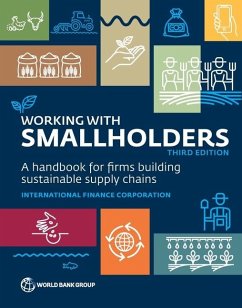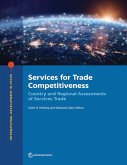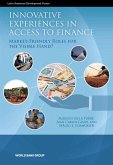Smallholder farmers are the stewards of more than 80 percent of the world's farms. These small family businesses produce about one-third of the world's food. In Africa and Asia, smallholders dominate the production of food crops, as well as export commodities such as cocoa, coffee, and cotton. However, smallholders and farm workers remain among the poorest segments of the population, and they are on the frontline of climate change. Smallholder farmers face constraints in accessing inputs, finance, knowledge, technology, labor, and markets. Raising farm-level productivity in a sustainable way is a key development priority. Agribusinesses are increasingly working with smallholder farmers in low- and middle-income countries to secure agricultural commodities. More productive smallholders boost rural incomes and economic growth, as well as reduce poverty. Smallholders also represent a growing underserved market for farm inputs, information, and financial services. Working with Smallholders: A Handbook for Firms Building Sustainable Supply Chains (third edition) shows agribusinesses how to engage more effectively with smallholders and to develop sustainable, resilient, and productive supply chains. The book compiles practical solutions and cutting-edge ideas to overcome the challenges facing smallholders. This third edition is substantially revised from the second edition and incorporates new material on the potential for digital technologies and sustainable farming. This handbook is written principally to outline opportunities for the private sector. The content may also be useful to the staffs of governmental or nongovernmental development programs working with smallholders, as well as to academic and research institutions.
Hinweis: Dieser Artikel kann nur an eine deutsche Lieferadresse ausgeliefert werden.
Hinweis: Dieser Artikel kann nur an eine deutsche Lieferadresse ausgeliefert werden.








